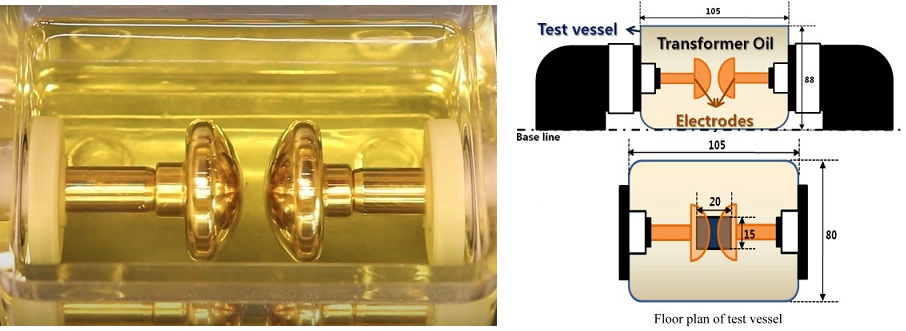Dielectric Transformer Oil: Enhancing Electrical Insulation and Transformer Efficiency
Dielectric Transformer Oil: Enhancing Electrical Insulation and Transformer Efficiency
Blog Article
Understanding Dielectric Transformer Oil: Necessary Advantages and Utilizes
Dielectric transformer oil serves as a vital part in the procedure of electric transformers and high-voltage tools, operating largely as a shielding tool. As we discover the numerous advantages and usages of dielectric transformer oil, one have to take into consideration just how its duty affects not simply devices dependability, however likewise wider operational considerations.
What Is Dielectric Transformer Oil?
Dielectric transformer oil is a customized protecting fluid made use of in electrical transformers and various other high-voltage electrical equipment. Unlike standard oils, dielectric oil is particularly created to possess high dielectric strength, which allows it to endure substantial electrical stress without carrying out electricity.
Commonly obtained from mineral oil or artificial sources, dielectric transformer oil fulfills rigid industry requirements for pureness and performance. Its chemical make-up is thoroughly made to decrease the danger of oxidation and deterioration with time, which is essential for maintaining the oil's insulating buildings.
Along with its insulating attributes, dielectric transformer oil acts as a coolant, absorbing and transferring heat generated by electric components during operation. This double capability is vital for enhancing the general performance and life expectancy of transformers. In addition, dielectric oils are subject to rigorous testing to guarantee compatibility with different products and to stop negative responses that can endanger system honesty. On the whole, dielectric transformer oil is an essential component in the reputable and risk-free operation of electrical framework.

Trick Benefits of Dielectric Oil
While dielectric transformer oil serves important features in electric systems, its benefits extend beyond simple insulation and air conditioning. Among the key advantages of dielectric oil is its high dielectric strength, which successfully protects against electric breakdown, guaranteeing the risk-free procedure of transformers and various other high-voltage tools. This residential or commercial property is important in preserving the dependability and longevity of electric systems.
In addition, dielectric oil possesses excellent thermal conductivity, permitting effective warm dissipation. This quality lessens the danger of getting too hot, therefore prolonging the life expectancy of transformers and minimizing upkeep expenses. Moreover, the oil's chemical stability and resistance to oxidation contribute to its sturdiness, making sure constant performance in time.
One more considerable benefit is its capacity to subdue arcing and corona discharge, which can harm electrical components. By giving a secure medium for electrical power transfer, dielectric oil boosts operational safety.

Applications of Dielectric Transformer Oil
Dielectric transformer oil plays a pivotal role in different applications within the electrical market, mostly as a result of its one-of-a-kind shielding and cooling down residential or commercial properties. One of its primary uses is in power transformers, where it serves to help with and insulate internal components heat dissipation. This is essential in preserving operational efficiency and longevity.
Along with power transformers, dielectric oil is additionally used in circulation transformers, guaranteeing reliable and secure power circulation. Its high dielectric stamina avoids electrical discharges, thereby reducing the threat of failings and improving system integrity. Dielectric transformer oil is used in reactors and capacitor banks, where it executes similar features, securing sensitive tools from electrical failure.

Upkeep Considerations
Proper upkeep of dielectric transformer oil is important to make sure optimal right here efficiency and durability of electrical tools. Routine monitoring of the oil's physical and chemical properties is critical to find any destruction that might impair the insulation and cooling down capabilities. Trick parameters to analyze include dampness material, level of acidity, and dielectric stamina.
Routine sampling and research laboratory analysis can recognize the existence of impurities such as dissolved gases, particulates, and oxidation results. These analyses assist in determining the oil's problem and whether it calls for treatment or substitute. Purification systems can be used to eliminate particulates and dampness from the oil, restoring its protecting residential or commercial properties and prolonging its lifespan.
Furthermore, keeping proper operating temperatures is essential; excessive warm can increase oil degradation (waste transformer oil). Implementing temperature tracking systems can aid in spotting overheating problems early
Ecological Impact and Safety
In evaluating the environmental impact and safety of dielectric transformer oil, it is important to think about both its composition and potential hazards. Typically acquired from mineral or artificial resources, dielectric oils can vary considerably in their environmental impact.
Safety and security worries mainly revolve around flammability and poisoning. Dielectric oils can be flammable, requiring proper storage space and managing procedures to mitigate fire threats. In addition, specific additives made use of in transformer oils might introduce toxicological threats, highlighting the value of selecting oils with favorable safety and security profiles.
Regulative conformity is likewise essential (dielectric transformer oil). Sticking to environmental laws and security criteria guarantees that More Help making use of dielectric transformer oils reduces adverse effects on human wellness and the community. Finally, understanding the ecological implications and security methods associated with dielectric transformer oils is crucial for responsible usage in electric applications
Conclusion
In summary, dielectric transformer oil serves as a vital part in boosting the safety and security and efficiency of electrical transformers and high-voltage equipment. Consideration of ecological impact and safety further underscores the importance of dielectric transformer oil in modern electric framework.
Dielectric transformer oil offers as a critical part in the procedure of electric transformers and high-voltage devices, working mainly try this as a protecting medium. Dielectric transformer oil is a specialized insulating liquid made use of in electric transformers and other high-voltage electrical equipment. Unlike standard oils, dielectric oil is especially created to have high dielectric stamina, which enables it to withstand considerable electrical anxiety without conducting electrical power.
One of the key advantages of dielectric oil is its high dielectric toughness, which properly stops electrical breakdown, ensuring the secure operation of transformers and other high-voltage tools.In summary, dielectric transformer oil offers as a critical element in enhancing the safety and security and effectiveness of electrical transformers and high-voltage tools.
Report this page